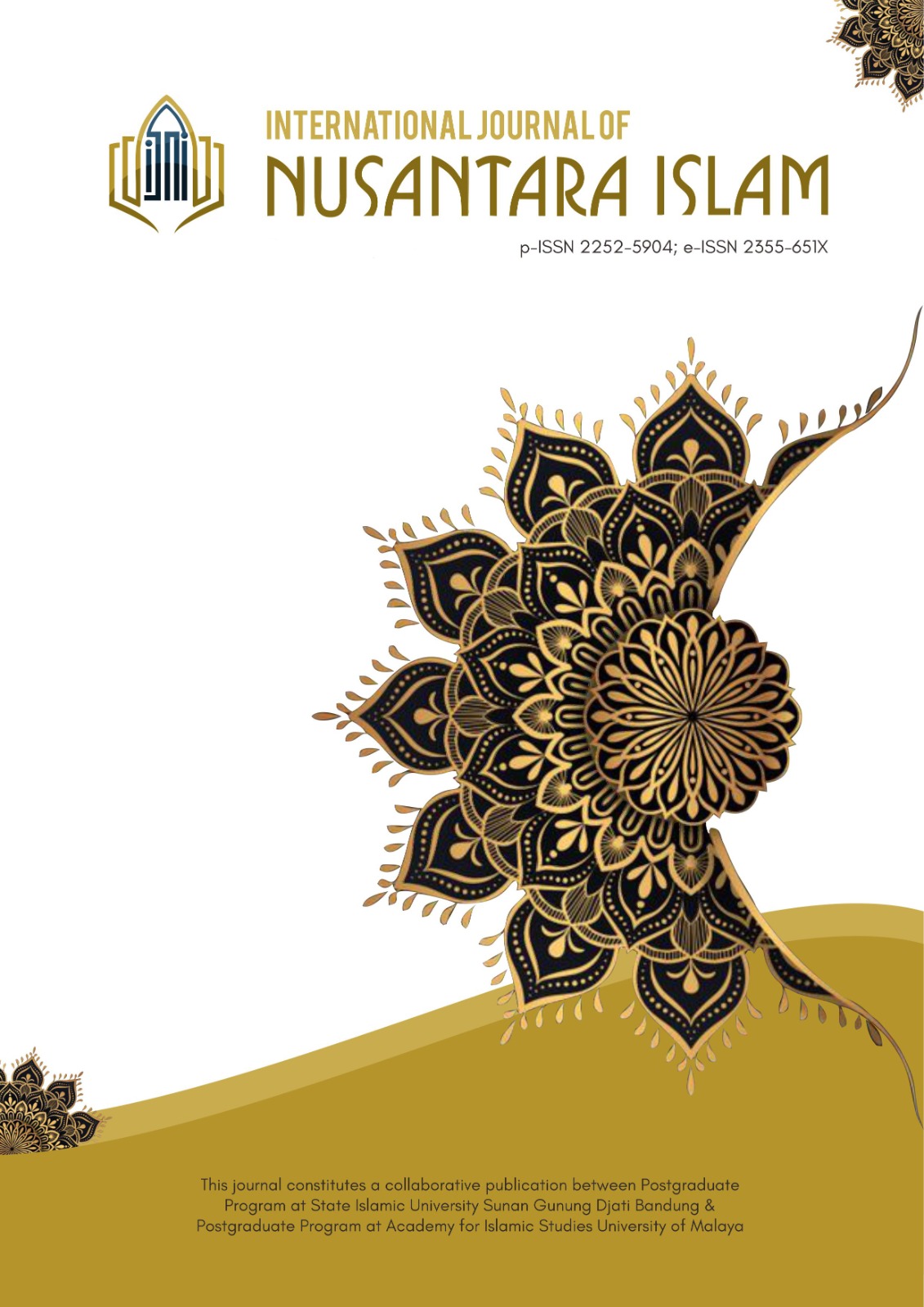Development Effect of Teacher Professional Abilities Through Training on The Professional Competency of Teachers And Teacher Performance of State Junior High Schools in the City of Bandung
Main Article Content
Abstract
The development of teacher professional abilities through training is an effort to improve teacher performance by increasing their professional competence. The main objective of developing teacher professional abilities through training is to solve teacher performance weaknesses both at present and in the future towards a more desirable level of performance. Because the development of teacher professional abilities through training is so important and requires a lot of money, it is necessary to research to find a real effect on teacher competence and performance. The research problems formulated are: 1) dimensions of teacher professional ability development through training; 2) teacher professional competence; and 3) teacher performance. The research approach is quantitative with a sample of 335 from a population of 2,064 junior high school teachers in Bandung. Data were obtained from teachers using a questionnaire. The data is processed and interpreted using path analysis as an inferential statistical technique by first testing statistical assumptions, including transforming ordinal data into intervals and data normality testing. The study concluded that the development of teacher professional abilities can improve teacher competence and performance, which is expected to ultimately improve the quality of student learning. The implications include: 1) it is necessary to develop effective training; and 2) competence with performance is important to promote better teaching and learning. Based on these implications, there are several recommendations, namely: 1) increasing the development of teacher professional abilities through technical assistance and quality control group forums; (2) designing the development of teacher professional abilities that have a direct impact on the teaching and learning process; (3) develop a model with competency as the dependent variable; and (4) recommend the human side of the organization as a determinant factor that needs to be investigated.
Â
Article Details
The Authors submitting a manuscript do so on the understanding that if accepted for publication, copyright of the article shall be assigned to International Journal of Nusantara Islam, Sunan Gunung Djati State Islamic University.
The copyright encompasses exclusive rights to reproduce and disseminate articles in all forms and media, including reprints, photographs, microfilm, and similar reproductions, as well as translations. Some or all of the contents of this journal can be stored in databases and transmitted in any form and media without the need for written permission from the International Journal of Nusantara Islam, Sunan Gunung Djati State Islamic University.
The Editors and the Advisory International Editorial Board make every effort to ensure that no wrong or misleading data, opinions or statements be published in the journal. In any way, the contents of the articles and advertisements published in the International Journal of Nusantara Islam (IJNI) are sole and exclusive responsibility of their respective authors and advertisers.
References
Casteter, W. B. (1981). The Personal Function In Education Administration. MC Millan Publishing.
Depdiknas. (2000). Laporan Diklat BEP dan Proyek SLTP perluasasan dan peningkatan mutu 1999-2000. Depdiknas.
Gibson, Ivancevich, & Donnelly. (1996). Organisasi, Perilaku, Struktur, Proses, (N. Adiarni, Trans.). Bina Rupa Aksara.
Hasibuan, M. P. (2001). Manajemen Sumber Daya Manusia. Bumi Aksara.
Kanwil Depdiknas. (2000). Laporan Kantor Wilayah Departemen Pendidikan Nasional Jawa Barat. Depdikknas Jabar.
Makmun, A. S. (1998). Pengembangan Profesi dan Kinerja Tenaga Kependidikan. Program Pascasarjana IKIP Bandung.
Mangkunegara, A. P. (2000). Manajemen Sumber Daya Manusia. Rosdakarya.
Mulyasa, E. (2003). Kurikulum Berbasis Kompetensi. PT. Remaja Rosda Karya.
Mulyasa, E. (2009). Praktik Penelitian Tindakan Kelas. Rosdakarya.
Pareek, U. (1983). Organizational Role Stress. In: Pfeiffer’s Classic Inventories, Questionniares and Surveys. Universty Associates.
Tenaga Kependidikan, Pub. L. No. No. 38 (1992).
Prawirosentono, S. (1999). Kebijakan Kinerja Karyawan. BPFE.
Rivai, V. (2004). Manajemen Sumber Daya Manusia Untuk Perusahaan. PT RajaGrafindo Persada.
Sadilin, S. (2005). Manajemen Sumber Daya Manusia. Pustaka Setia.
Sagala, S. (2009). Konsep dan Makna Pembelajaran. CV. Sahri.
Sedarmayanti. (2001). Sumber Daya Manusia dan Produktivitas Kerja. Mandar Maju.
Siagian, P. S. (1999). Manajemen Sumber Daya Manusia. Bumi Aksara.
Syah, M. (1999). Psikologi pendidikan dengan pendekatan baru. PT Remaja Rosdakarya.
Syaifuddin, & Usman, M. B. (2002). Guru Profesional dan Implementasi Kurikulum,. Ciputat Press.
Tresch, R. W. (1981). Public Finance: A Normative Theory. Business Publications, Inc.
Usman, N. (2007). Manajemen Peningkatan Kinerja Guru. Mutiara Ilmu.

